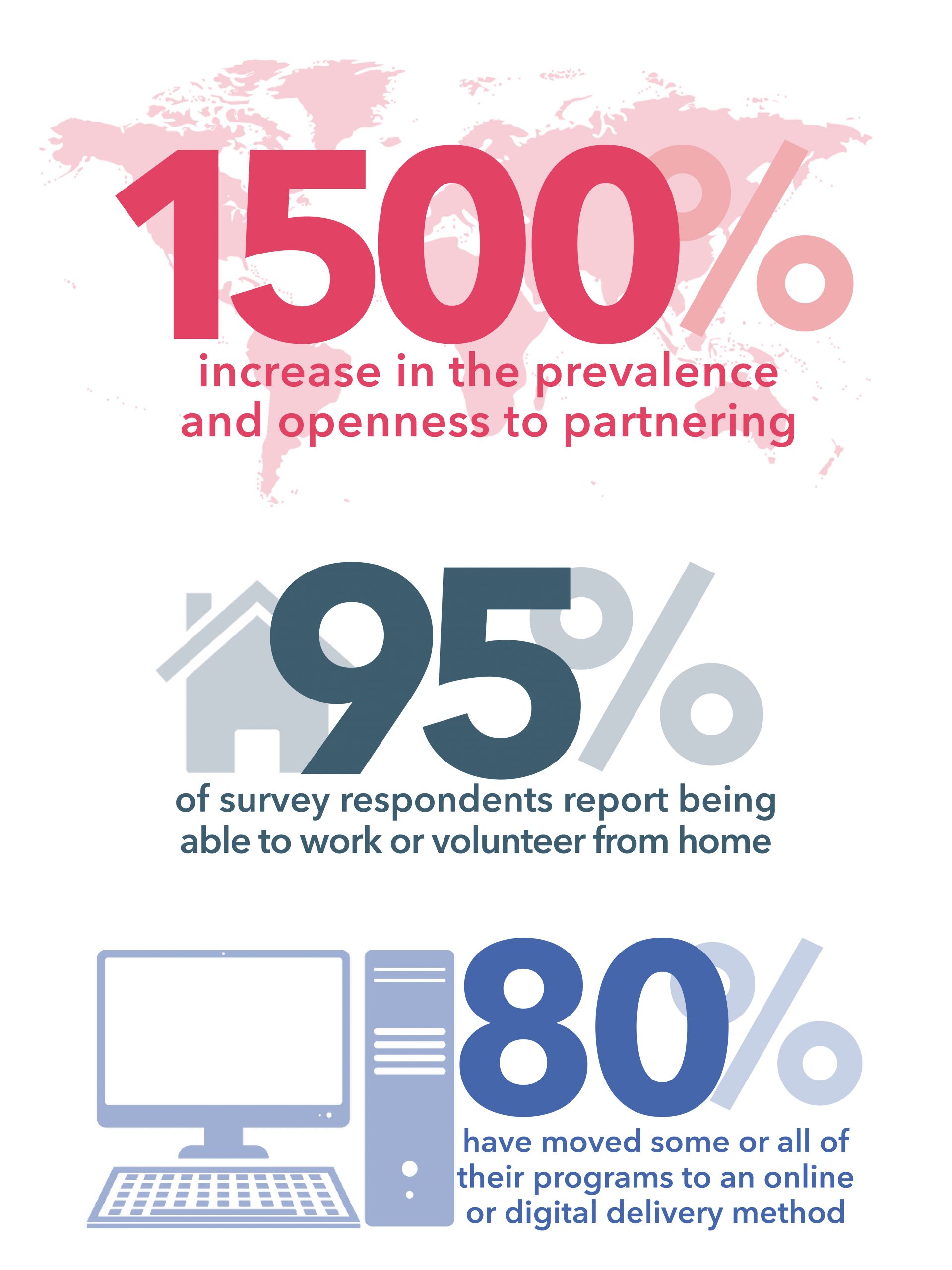 The impact of COVID-19 on life around the globe is extraordinary, and nonprofits are no exception to the disruption. As thought-leaders in the breast cancer nonprofit space, we created a brief, anonymous survey intended for breast cancer nonprofit staff, volunteers, and board members. The survey has helped to inform what funders and partners can do as we all look at how to respond to the COVID-19 crisis and build resilience afterward. The data points to fascinating insights in the breast cancer nonprofit world as uncertainties surrounding COVID-19 continue with no end in sight.
The impact of COVID-19 on life around the globe is extraordinary, and nonprofits are no exception to the disruption. As thought-leaders in the breast cancer nonprofit space, we created a brief, anonymous survey intended for breast cancer nonprofit staff, volunteers, and board members. The survey has helped to inform what funders and partners can do as we all look at how to respond to the COVID-19 crisis and build resilience afterward. The data points to fascinating insights in the breast cancer nonprofit world as uncertainties surrounding COVID-19 continue with no end in sight.
According to our survey, 35% of all respondents have seen layoffs or furloughing of staff at their organizations. While this is a notable amount of staff reduction for these organizations, 68% of all respondents don’t anticipate any further reductions in staff, in services, or in both. Without knowing when the economic and programmatic losses due to COVID-19 will end, there is no certainty that further won’t occur. David La Piana, founder and managing partner of La Piana Consulting, which helps the social sector navigate change, “has observed the prevalence of mergers to be 1 percent or less of the sector in any given year. It is remarkable that 23 percent of the organizations responding to our survey are now considering such partnerships.” We found a similar attitude shift toward partnerships and mergers, according to our survey, 15% of respondents answered their organization is considering partnerships, such as a merger with another nonprofit as a strategy for responding to the pandemic. These findings indicate a 1500% increase in the prevalence and openness to partnering.
Mergers don’t always happen because of financial hardship, in fact, mergers can be incredibly successful if they are a result of two organizations with a similar vision, but with a slightly varied approach or resources. Regardless, mergers do not equal failure of an organization, rather an opportunity to join forces. Now with the majority of breast cancer organization staff working remotely, according to our survey 95%, and with many programs moved online or to other digital delivery methods, according to our survey 80%, physical location is no longer a barrier. It has taken a pandemic for most organizations to realize this, but it could mean a positive and essential shift in the breast cancer space.
It has become increasingly apparent that the amount of breast cancer nonprofits working in silos and in competition with one another has become a hindrance to the ultimate goal of curing breast cancer. We are suffering from an overwhelming number of founders, working independently toward the same goal. COVID-19 has encouraged ingenuity, collaboration, and an essential pivot from traditional nonprofit practices. Rather than focusing on getting back to pre-pandemic processes and approaches, why not embrace this new normal? Collaboration could not only be the key to these organizations surviving this COVID-19 induced economic recession, but also the key to ending breast cancer.
Click here to view the full results of our survey.
